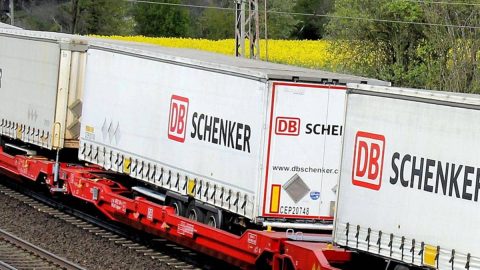Belgian-German energy summit confirms rail corridor for hydrogen

The port of Antwerp-Bruges hosted the Belgian-German energy summit on 14 February. Attended by both countries’ prime ministers, the summit highlighted cooperation between the two states on the energy sector and how Zeebrugge can become a hub for Germany in this framework. In addition, the conference confirmed that a hydrogen ‘rolling pipeline’ linking the Belgian port to Germany by rail is ready for implementation.
The two countries signed an agreement to accelerate energy collaboration on electrification, LNG, hydrogen and carbon capture to enhance their energy independence. Most importantly, they established an Energy Contact Group consisting of political and industry stakeholders that will meet annually to monitor relevant developments.
Additionally, the port of Antwerp-Bruges noted that the bilateral cooperation will also include the launching of transport flows between the countries where rail will also contribute: “our port is already a major supplier of LNG and natural gas for Germany, and concrete plans are ready for transporting hydrogen and hydrogen carriers to Germany via various transport modes such as pipelines, rail and inland navigation”.
Concrete plans for ‘rolling pipeline’
“Port of Antwerp-Bruges is working out concrete plans to transport sustainable hydrogen to Germany, further establishing ourselves as the green energy and feedstock hub of the future. To succeed, we need more Belgian-German cooperation in areas such as import, infrastructure, transport and purchase of these green energy flows”, commented the port’s CEO Jacques Vandermeiren.
The truth is that the idea of a ‘rolling pipeline’, namely rail transporting hydrogen between Belgium-Germany, has been floating around for five months. Even without an official interstate agreement, the port Antwerp-Bruge and duisport had agreed in mid-September 2022 to establish hydrogen flows either by rail or inland navigation.
The two companies back then mentioned their shared aspirations of becoming energy hubs in Europe and jointly building a hydrogen supply chain with direct and highly frequent rail shuttle connections between them as a short or mid-term solution for hydrogen transportation.
Follow RailFreight.com on Google News and get the latest industry updates.
Also read:
-
Another fuel import terminal, another rail service in Germany
-
Antwerp-Duisburg to establish rail ‘rolling pipeline’ for hydrogen
You just read one of our premium articles free of charge
Want full access? Take advantage of our exclusive offer




